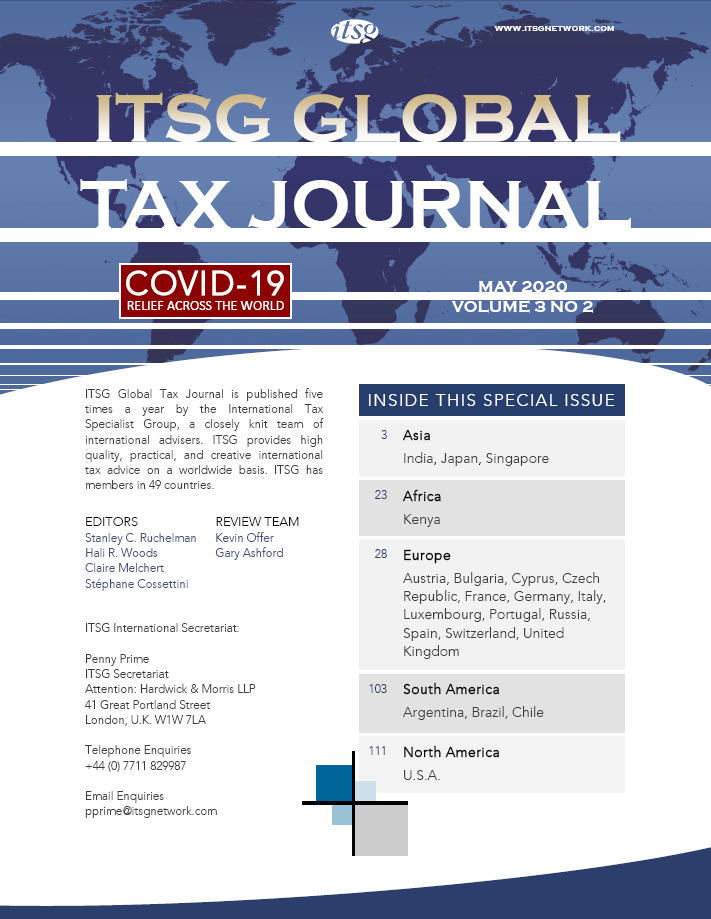The Declaration of the State Emergency
In order to deal with the public health emergency situation caused by the spread of COVID-19, a State of Emergency was declared on 18 March 2020 for the entire Portuguese territory. It covered a period of 15 days and anticipated possible renewals. With the declaration of the State of Emergency, the following rights are partially suspended:
- The right to travel and settle anywhere in the national territory.
- Property law and economic private initiative. This allows the Government to requisition service and property of health care units and industrial establishments and regulate how they operate and whether they should operate.
- Employee Rights. This includes control over workplace rules and the right to strike.
- The right to travel to and from the country. This includes the authority to establish border checks for persons and goods and health checks at points of entry to the country.
- The right to assemble and protest.
- The right of freedom of worship on a collective basis.
- The right of resistance.
The following measures were introduced by Presidential Decree pursuant the State of Emergency:
- The Government may impose the mandatory quarantine of all persons, either at home or in the hospital. It may quarantine entire areas that are hot spots. In addition, it may limit use of public roads to those performing professional activities, obtaining health care, assisting third parties or catering essential goods at the supermarket. Permitted travel should by non-essential persons should be unaccompanied.
- The use of personal property and real estate, commercial and industrial places of business, companies, or production units of a business may be requisitioned by public authorities for specific use related to the state of emergency. Mandatory hours of operations for some businesses, mandatory closing of other businesses, and other modifications to the activity of the companies are also foreseen. Changes to the quantity, nature, or price of goods produced or traded and changes to the streams of distribution are also anticipated.
- Workers may be required to perform functions at different locations, times, and for a different entity. It is expected that this requirement will mainly cover workers in healthcare, civil protection, security, defense, production, distribution, and supply of essential goods and services. The goal is to ensure the functioning of vital sectors of the economy and the operation of critical networks and infrastructure.
- Even though border controls on the mobility of people and goods have already been established, necessary measures can be taken to ensure the international circulation of goods and services.
Implementation of the State of Emergency
The implementation of of the State of Emergency is the responsibility of the Government. Through Resolution of the Council of Ministers no. 2-A/2020 of 20 March, the Government proceeded to establish and execute measures to prevent the transmission of the virus and contain the spread of COVID-19.
According to the Resolution, the main measures imposed focus on:
- Limits transportation on Public Roads.
- Restriction on the functioning of retail spaces.
- Rules for the operation or suspension of certain types of facilities that must remain in operation.
Limitations on the Free Movement of People:
As of the beginning of 22 March, the circulation on public roads was allowed only for certain specified purposes.
- The performance of professional or similar activities that cannot be carried out remotely.
- The acquisition of essential goods and services.
- For the search of employment or in response to a job offer.
Private vehicles may continue to travel on public roads to carry out any of the activities or to refuel at gas stations. It is not required to fill out an appropriate form in order to travel on public roads. However, companies that remain in business may consider preparing such documents for workers in order to proactively address challenges that may arise for those who commute to work.
Private Initiative Restrictions:
- Remote Working- Requirement
The Resolution establishes that it is mandatory for companies to allow workers to work remotely regardless of the employment relationship whenever the carried-out functions allow for this. It is contemplated that only few businesses will be allowed to avoid the remote working obligation. Examples include transport, health, factories and industry in general, construction and the provision of services in establishments that are generally not open to the public.
- Activities of the Trade Sector
- Retail
Retail activities are suspended as of the entry into force of the Resolution, except for those that sell goods considered as being essential. This is addressed in Appendix I of this note.
- Wholesale Trade and other establishments
The following activities are not suspended:
- Wholesale trade activities.
- Establishments that are exclusively engaged in home delivery, basically the provision of goods with delivery at the door of the establishment or through mail. Note that in these cases, access to the interior of the establishment by the public is prohibited.
- Retail
- Provision of service activities
Every business involving activities carried on in establishments open to the public is suspended. Exceptions are provide for those businesses that provide basic services or other services regarded as essential, such as agri-food production and distribution, and maintenance and repair establishments for motor vehicles and motorcycles. Appendix II provides additional detail on these establishments.
Restaurants and similar establishments may maintain their activity, but only for the sole purpose of home delivery or consumption outside of the establishment.
- E-commerce, remote service and special cases
The following activities are not suspended:
- E-commerce.
- Provision of service activities provided at a distance or through a digital platform.
- Retail trade activities or of service activities provided along a motorway or inside hospitals and airports.
In some circumstances, small retail trade establishments may operate, provided they obtain authorization. It is expected that authorization will be granted only in special cases.
- Public services
Most offices of the public administration, such as city hall, tax, and social security, are closed. While it is possible to make appointments at these offices, these appointments are few and far between.
- General Comments
Rental contracts: As is to be expected, the closure of a vast majority of retail activities will create significant pressure on tenants that have an obligation to pay rent whilst not receiving any income. The legislation states that the closure of establishments cannot be invoked by owners as justification for the termination of non-housing lease agreements or other forms of agreement for the use of real estate.
Priority face-to-face service: In retail or in the provision of service establishments which maintain their activity, people requiring a special duty of protection must be given priority.
Safety and hygiene rules: Retail or the provision of service establishments that remain open must ensure (i) a minimum distance of 2 meters between persons, (ii) customer stays are limited for the time strictly necessary for the purchase of products, and (iii) no one is permitted to consume products on premises.
Personal protection: Activities which remain in operation, in particular wholesale establishments, must comply with the health authorities’ recommendations regarding hygiene rules and distances between people
Concluding Remarks
Two somewhat contradictory principles permeate the Government’s response to the COVID-19 emergency. On one hand, the failure to comply with the rules implementing the declaration of the State of Emergency is considered a crime that is punishable by law. The penalties are summarized in Appendix III. On the other hand, the declaration of the State of Emergency does not compromise the rule of law in Portugal and the rights of individuals to life, personal integrity, civil capacity citizenship, the non-retroactive application of criminal law, and freedom of expression. This somewhat contradictory approach illustrates advice first given by William Shakespeare that desperate times breed desperate measures. When the COVID-19 virus dissipates, both the desperate times and the desperate measures will dissipate as well.
APPENDIX I
Activities that are closed
Recreational, leisure and entertainment activities:
- Nightclubs, bars, and dance or banquet halls
- Circuses
- Amusement parks and leisure parks for children and similar
- Water parks and zoos, without prejudice to the access of workers regarding the care of animals
- Premises for leisure sporting activities
- Other similar premises or facilities
Cultural and artistic activities:
- Auditoriums, cinemas, theatres and concert halls
- Museums, monuments, palaces, archaeological sites, whether national, regional, municipal, public or private, without prejudice to the access of workers for the purposes of conservation and security
- Libraries and archives
- Squares, bullfighting arenas and facilities
- Art galleries and exhibition halls
- Conference centres, community halls, conference rooms and multipurpose pavilions
Sports activities, except those intended for the activity of high-performance athletes:
- Soccer, rugby and similar fields
- Enclosed pavilions and spaces
- Futsal, basketball, handball, volleyball, roller hockey and similar pavilions
- Shooting ranges
- Tennis, paddle and similar courts
- Skating, ice hockey and similar rinks
- Pools
- Boxing, martial arts and similar rings
- Speedways for racing motorcycles and motor vehicles
- Velodromes
- Horse racing tracks
- Multisport pavilions
- Gyms and academies
- Athletic tracks
- Stadiums
Activities in public/private areas and roads
- Cycling, motorcycling, and car racing except by high performance athletes
- Nautical competitions and exhibitions
- Aeronautical competitions and exhibitions
- Parades and popular festivals or folkloric exhibits of any kind
Gaming and gambling activities:
- Casinos
- Games of chance establishments, such as bingos or similar
- Game rooms and recreation halls
Hospitality and catering activities:
- Restaurants, cafes, cafeterias, tea houses except for takeaway service
- Snack bars
- Hotel bars and restaurants other than for the delivery of meals to guests
- Terrace bars
- Vending machines
Thermal and spas or related establishments.
Appendix II
Activities that may remain open, as they are considered to be essential in the present circumstances
- Minimarkets, supermarkets, hypermarkets
- Fruit shops, butcher shops, fish mongers, bakeries
- Food markets
- Agri-food production and distribution
- Fish markets
- Restoration and beverages, under the specific terms of the present decree
- Confection of ready-to-take meals home, under the specific terms of the present decree
- Medical services and other medical or social support services
- Pharmacies and places of sale of non-prescription medicines
- Medical and orthopedic establishments
- Opticians
- Cosmetic and hygiene establishments
- Establishments of natural and dietary products
- Essential public services such as water, electricity, natural gas and channeled liquefied petroleum gas, electronic communications, postal services, waste water and effluent collection and treatment, urban solid waste management, urban hygiene services, and passenger transport services, all including repair facilities
- Stationery and tobacconists
- Social games
- Veterinary clinics
- Establishments for the sale of pets and pet food
- Establishments for the sale of flowers, plants, seeds and fertilizer
- Dry cleaning and washing establishments for textiles and fur
- Drugstores
- Hardware stores and establishments for the sale of D-I-Y materials
- Petrol stations
- Domestic fuel outlets
- Establishments for the maintenance and repair of motor vehicles and motorcycles, tractors and agricultural machinery, including parts and accessories, and towing services
- Establishments for the sale and repair of household appliances, computer and communications equipment and repair
- Banking, financial and insurance services
- Funeral and related activities
- Home maintenance and repair services
- Home security or surveillance services
- Cleaning, disinfection, and similar activities
- Home delivery services
- Tourist establishments, except campsites, and related guest catering and beverage services
- Services that guarantee student accommodation
- Activities and establishments set out in the preceding paragraphs, though integrated into shopping centers
ANNEX III
Description of the criminal penalties associated with the noncompliance of the limited exercise of the rights listed in the Declaration of the State of Emergency
The Declaration of the State of Emergency provides for the possibility of mandatory and compulsory confinement of citizens at home and restrictions on the movement on public roads, unless properly justified. Failure to comply with the measures enacted in that context may have several criminal consequences.
- With the declaration of a state of emergency, the right of movement in any part of the national territory was partially suspended. Persons who disobey the guidelines may be convicted of the crime of civil disobedience and are subject to a prison sentence of up to one year or a fine that ranges between €50 and €60,000.
In addition, the right to private economic initiative has been partially suspended due to the declaration of the state of emergency. Individuals and legal persons who do not comply with the rules may be convicted of the crime of civil disobedience and are subject to a prison sentence of up to one year.
For example, a bakery that does not comply with the order to remain open baking bread may be convicted of the crime of civil disobedience. The responsible officer may be convicted of the same crime. The same exposure exists if the bakery fails to comply with an order to close operations. Individuals are subject to a fine that ranges between €50.00 and €60,000.00. Businesses are subject to a fine that ranges between €1,000 and €1,200,000. - With the declaration of a state of emergency, workers' rights were partially suspended. Now, public authorities may direct employees of public or private entities to work in a different place, in a different entity, and under different working conditions and schedules. This provision likely is directed at employees in the healthcare, civil protection, security and defense sectors. The exercise of the right to strike is suspended to the extent that a strike may jeopardize the functioning of critical infrastructures or health care units and their suppliers of essential goods and services.
Those workers who do not follow proper instructions may be convicted of the crime of a civil disobedience which is punishable by a prison sentence of up to one year or a fine that ranges between €50 and €60,000. - With the declaration of the state of emergency, the right of assembly was partially suspended. Restrictions may be imposed by competent public authorities in order to reduce the risk of contagion and implement measures to prevent and combat the epidemic. In the event of an intentional failure to disburse after having received a proper order, individuals may be convicted of the crime of civil disobedience. Again, this is punishable by imprisonment of up to one year or a fine that ranges between €50 and €60,000.
Original document can be found at: TELLES Advogados | Coronavirus | State of Emergency Measures

 Login
Login




















































